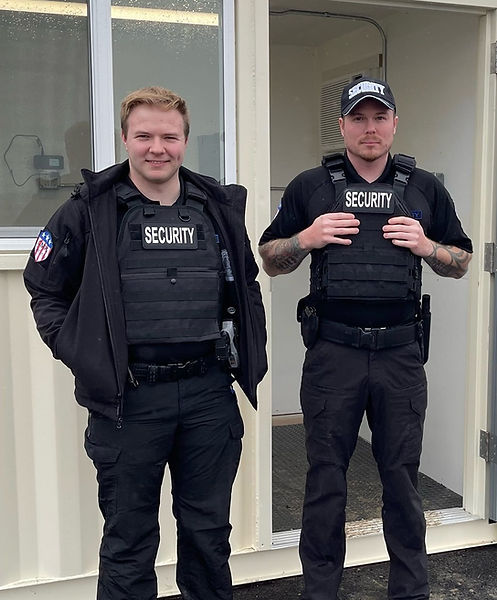Armed Security Guards
Armed Security Officer — Training Program & Requirements
Including Updated Axon Taser & Firearms Simulation Software
1. Program Overview
An Armed Security Officer is charged with safeguarding people and property, deterring theft or damage, and responding effectively to threats. CMPS Security’s comprehensive training ensures officers are prepared for real-world scenarios using both live-fire instruction and cutting-edge simulation tools (Axon Taser simulator & firearms software).
2. Training Requirements & Outline
A. Security Officer Core Subjects (Entry-Level)
Total Hours: 16
-
Montana Code & Regulations
-
Applicable sections of the Code of Montana and Private Security Services regulations
-
-
Code of Ethics
-
Professional standards and conduct expectations
-
-
General Duties & Responsibilities
-
Patrol techniques, incident response, and reporting protocols
-
-
Signs of Terrorism
-
Recognizing indicators and initial response measures
-
-
Policies & Procedures
-
CMPS operational policies (overview; no exam)
-
B. Handgun Training (24 Hours)
1. Classroom (8 Hours)
-
Handgun parts identification & function
-
Safe draw, re-holstering, and stance fundamentals
-
Ammunition types, identification & management
-
Firearm maintenance & lead-exposure safety
-
Use-of-Force law: deadly force criteria, liability, and negligent discharge prevention
2. Practical Range (16 Hours)
-
Handling & Manipulation:
-
Administrative, tactical, and rapid reloads
-
Unloading, malfunction clearing, and immediate action drills
-
Retention & remedial action techniques
-
-
Marksmanship Skills:
-
Grip, stance, sight alignment, trigger control, breathing, follow-through
-
Low-light shooting & flashlight use
-
-
Judgmental Scenarios:
-
Simulated threat assessments and target identification
-
Live-fire judgmental shooting exercises under stress
-
C. Axon Taser & Firearms Simulation Software (8 Hours)
-
Axon Taser Simulator: Real-world deployment drills and de-escalation scenarios
-
Firearms Software: Virtual live-fire judgmental scenarios, after-action review, and stress-inoculation training
D. Use-of-Force & Legal Liability (4 Hours)
-
Deadly Force Guidelines
-
Justifiable Use & Reporting Requirements
-
Criminal & Civil Liability
-
Documentation & After-Action Reporting
E. Lead Exposure & Range Safety (2 Hours)
-
Health risks of lead in training environments
-
Personal protective equipment & hygiene procedures
3. Written Examination
-
Format: 50 questions (multiple-choice & short answer)
-
Coverage: All core subjects, handgun safety, legal use of force, and simulation software protocols
-
Passing Score: 80%
4. Annual Requalification
-
Physical Fitness & Stress Test: Validate endurance under simulated high-pressure scenarios
-
Judgmental Simulation Drill: Pass updated Axon and firearms software scenarios
-
Legal & Policy Review: Ensure currency with Montana law and CMPS procedures
By completing this program, CMPS Security officers achieve the skills, judgment, and legal knowledge required to protect clients confidently and responsibly—backed by industry-leading instructors and state-of-the-art training technology.






